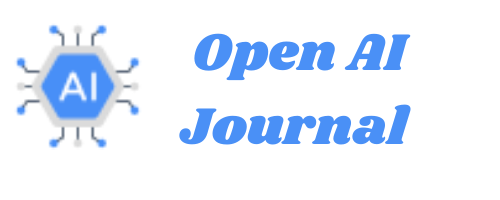Ultimate Ethical Debate On Scraping: Innovation Or Invasion?

Table of Contents
Introduction: The Dual-Edged Sword of Web Scraping
In the ever-expanding digital landscape, where data is often referred to as “the new oil,” the ethical debate on scraping has become a hot topic of discussion. At its core, web scraping is the process of extracting data from websites, typically through automated tools. While its applications range from powering innovative technologies to democratizing access to information, this seemingly straightforward act has sparked significant ethical and legal controversy.
Think about it: when you scrape publicly available data, are you tapping into a shared resource, or are you crossing a line into someone else’s intellectual territory? The answer isn’t black and white, and this murky gray area is precisely why the ethical debate on scraping continues to rage on.
At its best, scraping promotes transparency, levels the playing field for small businesses, and fuels scientific breakthroughs. At its worst, it disrupts web services, infringes on copyrights, and jeopardizes user privacy. The ethical debate on scraping isn’t just about whether we can extract data—it’s about whether we should.
This article delves into this complex topic, exploring the arguments for and against web scraping, real-world examples of its impact, and best practices for conducting it responsibly. By understanding the nuances of the ethical debate on scraping, we can navigate this intricate landscape with clarity, innovation, and respect for ethical boundaries.
So, let’s unravel the threads of this controversy together and consider how we might strike the right balance between innovation and integrity in the age of data-driven decision-making.
The Ethical Debate on Scraping: Exploring the Arguments

1. Public Data Isn’t Always Free Data
The first point of contention in the ethical debate on scraping is whether public data is fair game. Many argue that if data is freely accessible online, scraping it should be permissible. After all, aren’t websites voluntarily publishing that information?
Yet, this perspective overlooks critical nuances. Just because something is publicly visible doesn’t mean the owner consents to its collection or use. For example, in 2019, a scandal erupted when Clearview AI scraped billions of images from social media platforms to build a facial recognition database without user consent. While the data was technically public, its use triggered a global backlash for violating privacy norms.
Even in my own experience, I’ve grappled with these questions. A few years ago, I developed a script to scrape real estate listings for a personal project. The goal was harmless—analyze housing trends in my area. But when I considered the site owner’s perspective, I paused. Was I devaluing their service by extracting data that should encourage users to visit their platform? This introspection led me to revise my approach, opting for manual, selective data collection.
2. The Invisible Line: Terms of Service
Another significant ethical challenge lies in navigating a website’s Terms of Service (ToS). Many sites explicitly prohibit scraping, stating it violates their policies. Ignoring these terms may seem harmless, especially if no harm is done, but doing so undermines the mutual trust that the digital ecosystem relies on.
Consider the LinkedIn vs. hiQ Labs case, one of the most cited examples in this debate. HiQ Labs scraped publicly visible LinkedIn profiles for analytics purposes, even though LinkedIn’s ToS prohibited such activity. The court ruled in favor of hiQ Labs, emphasizing the importance of open data. However, the case remains divisive because it pits individual platform control against broader societal benefits like innovation and transparency.
From a personal standpoint, respecting ToS feels like a baseline for ethical scraping. During my early experiments with scraping, I encountered websites where the ToS clearly prohibited it. I decided against proceeding, not just out of legal fear but because it felt like crossing an invisible line of respect.
3. Impact on Website Functionality
Scraping, when done irresponsibly, can disrupt a website’s functionality, creating a poor user experience. Imagine running a small online store and noticing your site slowing down because someone’s bot is hitting it thousands of times per minute. It’s not just frustrating; it’s costly.
The ethical debate here revolves around intent and execution. Is the scraping process designed to minimize harm, or is it purely self-serving? Responsible scrapers implement rate limits and adhere to a site’s robots.txt file to avoid burdening servers.
For example, I once set up a scraper to collect data on open academic resources for a project. I made a conscious effort to space out requests and respect server limits. The result? A smooth process with no impact on the site’s performance. This experience reinforced my belief that ethical scraping isn’t just about what you collect but how you collect it.
4. Data Privacy and Personal Information
Scraping crosses into deeply ethical territory when it involves personal data. With laws like the GDPR and CCPA, data privacy has become a cornerstone of modern ethics. Scraping user information—names, emails, or even browsing patterns—without explicit consent is a clear violation of these principles.
Consider the infamous Cambridge Analytica scandal, where user data was harvested and used to manipulate elections. Although this involved an app rather than traditional scraping, the underlying issue—unauthorized data collection—remains the same. The fallout from this case highlighted how such practices can erode public trust in digital systems.
In one of my projects, I had to make a decision about scraping a public forum for sentiment analysis. Even though usernames were anonymized, I felt uneasy. Was it truly ethical to analyze conversations without contributors’ awareness? Ultimately, I decided to focus on broader trends without extracting granular details, balancing my research goals with respect for individual privacy.
The Ethical Case For Scraping
Let’s dive deeper into the ethical case for web scraping. It’s a topic that’s been buzzing around, and I think it’s worth unpacking the nuances together.

Empowering Research and Innovation
Web scraping has become a cornerstone for researchers and innovators. By automating data collection from publicly accessible websites, it enables the aggregation of vast datasets that would be impractical to gather manually. This capability has been transformative across various fields.
For instance, in the realm of academic research, scholars utilize web scraping to analyze social media trends, monitor public health data, and study economic indicators. A recent article highlighted how web scraping is redefining research methodologies, allowing for more comprehensive and timely analyses.
Moreover, businesses leverage web scraping to gain competitive insights. By collecting data on market prices, consumer reviews, and product availability, companies can make informed decisions that enhance their market positioning. This practice is not merely about staying ahead but also about understanding market dynamics to serve consumers better.
Promoting Transparency and Accessibility
One of the compelling ethical arguments for web scraping is its role in promoting transparency. By extracting and analyzing data from government websites, watchdog organizations can hold public institutions accountable. This process ensures that information meant for public consumption is effectively utilized to foster transparency and civic engagement.
Additionally, web scraping facilitates the creation of accessible databases. For example, aggregating job postings from various platforms can help job seekers access opportunities more efficiently. This democratization of information aligns with the ethical principle of equal access to resources, bridging gaps that might exist due to information silos.
Driving Economic Growth
The economic impact of web scraping is significant. The web scraping software market is projected to reach USD 2.45 billion by 2036, growing at a CAGR of 13.25% during the forecast period. This growth is indicative of the increasing reliance on data-driven decision-making across industries.
Startups and small businesses, in particular, benefit from web scraping by accessing market data that would otherwise be dominated by larger corporations. This access enables them to compete more effectively, fostering innovation and contributing to a dynamic economic landscape.
Ethical Considerations and Best Practices
While the benefits are substantial, it’s crucial to approach web scraping ethically. This involves respecting website terms of service, avoiding overwhelming servers with excessive requests, and ensuring that the data collected is used responsibly. Upholding ethical standards is crucial to building trust, respecting website owners’ rights, and protecting individuals’ privacy and security.
By adhering to these principles, we can harness the advantages of web scraping while mitigating potential ethical dilemmas. It’s about finding a balance that promotes progress without compromising integrity.
In conclusion, web scraping, when conducted ethically, serves as a powerful tool that drives research, promotes transparency, and stimulates economic growth. By embracing responsible practices, we can ensure that the benefits of web scraping are realized while respecting the rights and privacy of all stakeholders involved.
Balancing Act: Best Practices for Ethical Scraping
It’s a nuanced topic, and understanding the intricacies can help us navigate the digital landscape responsibly.

Understanding Website Policies and Legal Boundaries
Before initiating any web scraping activities, it’s crucial to familiarize yourself with a website’s terms of service (ToS) and its robots.txt file. The robots.text file provides directives about which parts of the site can be accessed by automated agents. Ignoring these guidelines can lead to legal complications and damage relationships with website owners. A study on the legality and ethics of web scraping emphasizes the importance of adhering to these protocols to avoid potential legal issues.
Moreover, it’s essential to recognize that while some websites may permit scraping, others explicitly prohibit it. Disregarding a site’s ToS can lead to legal repercussions and ethical dilemmas. Engaging in scraping activities without proper authorization can be seen as a violation of the website owner’s rights, leading to potential legal actions. Therefore, always ensure that your scraping activities are in line with the website’s policies and legal requirements.
Implementing Respectful Scraping Techniques
Ethical scraping involves employing techniques that minimize the impact on the target website’s performance. Overloading a server with rapid, successive requests can degrade its performance or even cause it to crash. To prevent this, it’s advisable to implement rate limiting—spacing out requests to avoid overwhelming the server. Additionally, scraping during off-peak hours can reduce the risk of disrupting regular user access. A guide on ethical web scraping suggests that being gentle with your requests and respecting the website’s capacity are key components of responsible scraping.
Furthermore, it’s important to use proper scraping techniques that align with the website’s structure and data presentation. This includes handling data responsibly, avoiding deceptive practices like cloaking or spoofing user agents, and ensuring that the data collected is used in a manner consistent with ethical guidelines. By adopting these practices, you not only protect the integrity of the website but also uphold the ethical standards of data collection.
Ensuring Data Privacy and Compliance
When scraping data, especially personal information, it’s imperative to comply with data protection regulations like the General Data Protection Regulation (GDPR). Collecting personal data without consent can lead to severe legal consequences. An article on the ethics of web scraping highlights the importance of considering data privacy and ownership, noting that unauthorized data collection can lead to ethical and legal challenges.
Additionally, it’s essential to anonymize and secure any personal data collected to protect individuals’ privacy. This includes implementing measures to prevent data breaches and unauthorized access. By ensuring data privacy and compliance, you not only adhere to legal standards but also build trust with users and stakeholders.
Transparent Intentions and Ethical Responsibility
Being transparent about your scraping activities can foster trust and collaboration. If feasible, inform website owners of your intentions and the purpose behind data collection. This openness can lead to partnerships or access to official APIs, providing data in a more structured and ethical manner. An article on ethical web scraping practices emphasizes the importance of transparency and consent, suggesting that whenever possible, obtaining permission from website owners is a key aspect of ethical scraping.
Moreover, transparency extends to how the collected data is used. Clearly communicating the purpose and application of the data can alleviate concerns and demonstrate ethical responsibility. By being open about your data collection and usage practices, you contribute to a culture of trust and integrity in the digital ecosystem.
Regularly Reviewing and Updating Practices
The digital landscape is continually evolving, and so are the ethical standards associated with web scraping. Regularly reviewing and updating your scraping practices ensures they remain ethical and compliant with current regulations. Staying informed about changes in data protection laws and website policies is essential for maintaining responsible data collection methods. An article on web scraping best practices suggests that continuous learning and adaptation are crucial for ethical data collection.
Additionally, engaging with the broader community through forums and discussions can provide insights into emerging ethical considerations and best practices. By staying proactive and informed, you can navigate the complexities of web scraping with integrity and responsibility.
In conclusion, ethical web scraping requires a balanced approach that respects legal boundaries, employs considerate techniques, ensures data privacy, maintains transparency, and adapts to the evolving digital environment. By adhering to these best practices, we can harness the benefits of web scraping while upholding the ethical standards that protect the integrity of the digital ecosystem
Conclusion: Navigating the Ethical Debate on Scraping
The ethical debate on scraping is far from being a simple issue with clear-cut answers. As we’ve explored, web scraping lies at the crossroads of technological innovation, data privacy, and intellectual property rights, making it a complex and often contentious topic. On one hand, scraping unlocks vast amounts of publicly accessible data, driving research, empowering businesses, and fueling advances in AI and other technologies. On the other hand, it raises significant concerns about privacy breaches, data misuse, and the potential for exploitation of resources that others have worked hard to develop.
As the digital world grows increasingly interconnected, the ethical debate on scraping only becomes more pressing. With the global web scraping market projected to grow significantly, its influence on industries like e-commerce, journalism, and healthcare will continue to shape how we access and use information. Scraping can democratize access to data, but it also challenges the boundaries of intellectual property and the rights of website owners. It’s not just about whether web scraping is possible—it’s about understanding the broader implications of these actions and ensuring they align with ethical standards that respect privacy, transparency, and fairness.
To move forward responsibly, we must prioritize ethical scraping practices. This includes respecting website terms of service, avoiding overloading servers, ensuring compliance with data protection regulations like GDPR, and being transparent about the purpose and scope of data collection. By adhering to these guidelines, we can maximize the benefits of web scraping while minimizing its potential harms.
In the end, the ethical debate on scraping invites us to reflect on our collective responsibility in the digital age. How can we leverage technology to foster progress without compromising individual rights? How do we balance the pursuit of knowledge and innovation with the need to protect personal data and respect intellectual property? These are the questions that we must continue to ask as we navigate the evolving landscape of web scraping.
The future of web scraping depends not only on the tools and technologies that drive it but on the ethical framework we build around it. As we push forward, it’s crucial that we remain mindful of the ethical implications of our actions and strive to create a digital ecosystem that prioritizes both innovation and integrity. Only then can we ensure that web scraping remains a force for good, benefiting society while respecting the rights of all involved.






